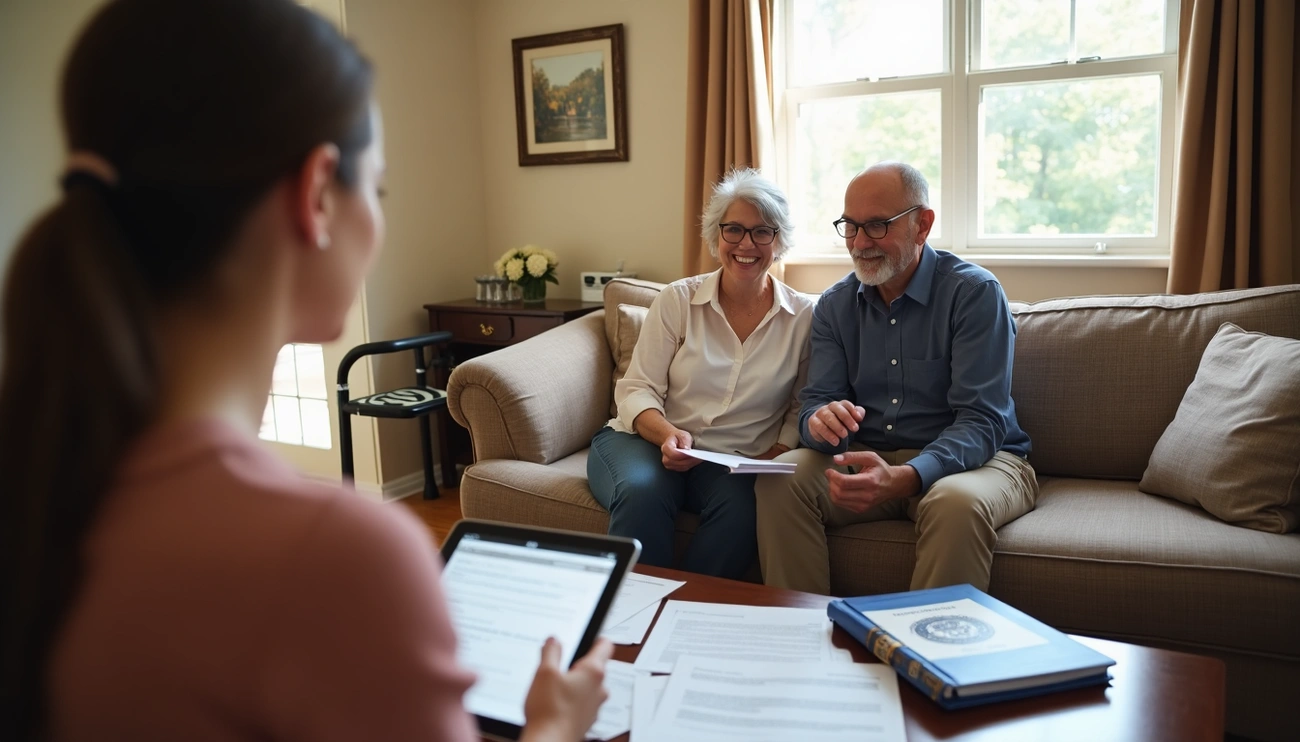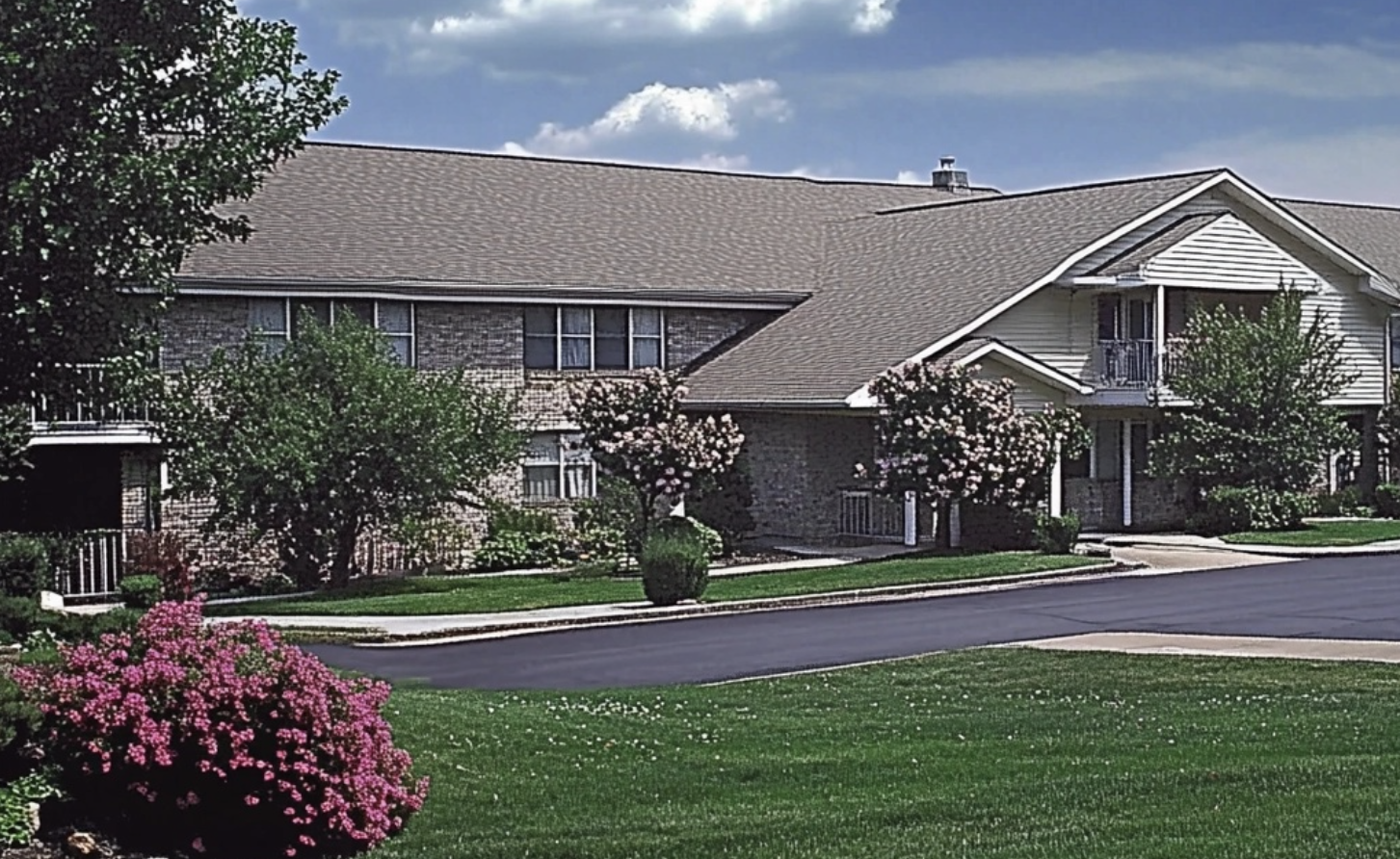More than two-thirds of U.S. seniors aged 65 and older require long-term care services, highlighting why help for seniors in Georgia is essential rather than simply beneficial.
Georgia’s senior benefit system comes with strict eligibility requirements. Single Medicaid applicants must earn less than $30,276 annually and possess assets under $2,000. The state offers significant tax advantages, including a $4,000 property tax exemption for those 65 and older. Georgia doesn’t tax Social Security benefits and allows seniors to exclude up to $65,000 of retirement income from state taxes.
Senior support programs extend beyond healthcare assistance. The Georgia SHIP program offers free Medicare guidance, while the Lifeline Program provides telephone service discounts. Seniors facing food insecurity can access the state’s Emergency Food Assistance Program, ensuring nutritional needs are met.
This guide outlines these benefits step by step, eliminating confusion from the process. Coverage includes healthcare options, financial assistance programs, and resources for daily living needs.
Understand Healthcare and Prescription Benefits
Healthcare coverage represents a major concern for Georgia’s aging population. Knowledge of available options often determines whether seniors struggle with medical bills or receive necessary care.
Medicaid for seniors in Georgia: What’s covered
Georgia Medicaid provides healthcare coverage for seniors with limited income. Eligibility requirements include being 65 or older, needing nursing home care, holding U.S. citizenship or legal residency, and living in Georgia full-time. Single applicants must earn less than $30,276 annually with assets under $2,000. Married couples applying together need combined income below $60,552 and assets under $3,000.
Medicaid benefits cover long-term care services, nursing facility care, home-based care, and hospice services. Georgia also offers specialized programs including the Community Care Services Program and Service Options Using Resources in a Community Environment (SOURCE) Waiver.
How to apply for Medicare and Medicare Advantage
Medicare enrollment generally begins three months before turning 65. Recipients of Social Security benefits are automatically enrolled in Medicare Parts A and B. Others must contact Social Security online, call (800-772-1213), or visit their local office.
Medicare Advantage Plans (Part C) combine Original Medicare benefits with additional coverage in a single package. The average monthly premium for a Medicare Advantage plan in Georgia is $14.29, though many plans come with $0 premiums. All Medicare-eligible Georgians have access to at least one no-cost premium plan.
Prescription help through Medicare Part D and savings programs
Medicare Part D covers costs for brand-name and generic prescriptions. Seniors with limited income should apply for Extra Help (Low-Income Subsidy), which assists with premiums, deductibles, and copayments.
Georgia’s Medicare Savings Programs help with various costs:
- Qualified Medicare Beneficiary (QMB): Covers premiums, deductibles, and coinsurance
- Specified Low-Income Medicare Beneficiary (SLMB): Pays Part B premiums
- Qualifying Individual (QI): Covers Part B premiums with higher income limits
- Qualified Disabled Working Individual (QDWI): Pays Part A premiums
Seniors can apply through their local Division of Family and Children Services or online at Georgia Gateway.
Get Financial Support for Daily Living
Healthcare isn’t the only concern for Georgia seniors living on fixed incomes. Multiple government programs provide monetary assistance for essential living expenses.
Social Security and Supplemental Security Income
Social Security delivers income to retirees who have earned at least 40 credits during their working years. Applications can be submitted through the Social Security website, by calling (800) 772-1213, or at local offices.
Supplemental Security Income (SSI) serves seniors 65 or older, blind, or disabled individuals with limited resources. SSI eligibility depends on financial need rather than work history.
Social Security recipients must wait 24 months to qualify for Medicare, while SSI recipients receive Medicaid coverage immediately. Georgia provides a state supplement to federal SSI benefits.
Cash assistance for non-medical needs
Cash assistance programs help seniors afford toiletries, utilities, public transportation, and other necessities.
The maximum federal SSI benefit for 2024 reaches $943 monthly for individuals and $1,415 for couples. This financial support reduces stress for seniors with limited resources.
SSI benefit calculations disregard the first $20 of unearned income monthly, plus the first $65 of earned income and half of anything above that amount. Food stamps and certain other supports don’t count against benefit calculations.
Eligibility rules and income limits
SSI qualification requires:
- Age 65 or older, blindness, or disability
- Limited income below the federal benefit rate
- Resources under $2,000 for individuals or $3,000 for couples
- U.S. citizenship or qualified non-citizen status
- Residence in one of the 50 states, D.C., or Northern Mariana Islands
Resources include cash, bank accounts, stocks, land, vehicles, and other convertible assets. Excluded items encompass your home, one car (up to $4,500), burial plots, and household goods up to $2,000.
Georgia’s Division of Family and Children Services assists seniors applying for these support programs.
Find Help at Home and with Housing
Housing security represents a critical concern for Georgia seniors. Several state and federal programs help older residents maintain safe, independent living environments.
The USDA Section 504 Home Repair program offers loans up to $40,000 and grants up to $10,000 for very low-income senior homeowners. Eligibility requires applicants to be at least 62 years old for grants, unable to obtain credit elsewhere, and currently occupying the home. This program specifically addresses critical repairs that eliminate health and safety hazards.
Atlanta-area seniors can access the Senior Home Repair Program providing free critical home repairs for elderly, veteran, and disabled homeowners. The program allows vulnerable residents to age in place without displacement due to unsafe living conditions.
For those with mobility challenges, Georgia’s Home Access Program supplies grants up to $10,000 for modifications including bathroom retrofits, wheelchair ramps, and doorway widening.
Utility costs often strain fixed incomes. The Low Income Home Energy Assistance Program (LIHEAP) provides energy bill assistance, crisis intervention, and weatherization services. This federally-funded program operates on a first-come, first-served basis.
Georgia Power customers aged 65+ with household incomes at or below 200% of Federal Poverty Guidelines qualify for the Income-Qualified Discount. Single-person households must earn less than $31,300 annually to participate.
Eligible seniors receive up to a $14 discount on Georgia Power or natural gas bills. The HEAT program, administered through local Community Action Agencies, assists with various energy expenses regardless of source.
Property tax relief offers additional financial breathing room. Homeowners aged 65+ with household income under $10,000 may claim a $4,000 exemption from county property taxes. Those 62+ with income below $30,000 may qualify for exemption from state and county taxes on property value increases.
Renters facing financial difficulties can apply for emergency rental assistance through Georgia’s Department of Community Affairs.
Access Food, Equipment, and Local Services
Georgia seniors can access essential services addressing daily living needs beyond financial and healthcare benefits. Programs offering nutritional support, medical equipment, and community connections are particularly well-established across the state.
Meals on Wheels and food pantry options
Nutritional security stands as a priority for Georgia’s aging population. The state provides congregate meals at senior centers and home-delivered meals through Older Americans Act programs. Each meal must provide at least one-third of the Reference Daily Intakes and follow the Dietary Guidelines for Americans. These meals come at no charge, though voluntary contributions are accepted.
Home-delivered meals offer both nutrition and a valuable social check-in for homebound seniors. Georgia’s Aging and Disability Resource Connection at 1-866-552-4464 serves as the access point for these services.
Georgia’s food assistance options include:
- The Commodity Supplemental Food Program (CSFP) provides monthly boxes containing milk, canned vegetables, pasta, and other essentials to low-income seniors
- The Emergency Food Assistance Program (TEFAP) offers food through local food banks and pantries
- Senior Food Box programs deliver monthly nutritious, meal-ready groceries to eligible seniors
Free used medical equipment programs
Organizations like Friends of Disabled Adults and Children (FODAC) accept donated medical equipment for redistribution throughout Georgia. Their inventory includes wheelchairs, walkers, hospital beds, shower supports, and other gently used equipment.
Programs such as the Medical Equipment Lending Program distribute recycled equipment on a first-come, first-served basis. Available items typically include canes, crutches, shower chairs, and wheelchairs. These services enable seniors to maintain independence without financial strain.
Where to find local senior centers and support
Senior centers function as community hubs where adults 60+ can pursue interests, receive services, and participate in activities enhancing their quality of life. These centers serve as vital connection points for Georgia seniors.
The Georgia Division of Aging Services reports each center provides programming tailored to community needs, including wellness programs, exercise classes, recreational activities, hot noon meals, and transportation services. These centers offer crucial support for aging in place.
The Atlanta region alone had nearly 870,000 residents aged 60+ in 2021, representing one in five residents. Finding local centers requires only checking county government websites or contacting your Area Agency on Aging.
Conclusion
Georgia seniors can access numerous benefits without facing overwhelming complexity. Resources available across the state significantly improve quality of life for older residents. Understanding specific eligibility requirements remains essential, as most programs enforce strict income and asset limitations.
Medicaid provides the foundation of senior healthcare support for qualified applicants. Medicare Part D and various savings programs offer vital prescription assistance. Social Security and SSI benefits extend financial support beyond healthcare, helping cover daily expenses for eligible individuals.
Most Georgia seniors prefer aging in their own homes. The USDA Section 504 program provides loans up to $40,000 and grants up to $10,000 for low-income senior homeowners. Atlanta’s Senior Home Repair Program offers free critical repairs for vulnerable homeowners. Property tax exemptions reduce financial burdens for homeowners aged 65 and older.
Meals on Wheels and medical equipment lending services address nutritional and mobility needs. Local senior centers function as connection points, offering activities, meals, and access to various services. Georgia seniors can find assistance for nearly every aspect of daily living.
Georgia’s Aging and Disability Resource Connection at 1-866-552-4464 serves as the primary contact point for accessing these benefits. This single call connects seniors with programs tailored to their specific situations. While paperwork and eligibility requirements initially appear daunting, the substantial benefits make the effort worthwhile. These resources exist to help Georgia seniors maintain independence and quality of life during their later years.
FAQs
Q1. What food assistance programs are available for seniors in Georgia? Georgia offers several food assistance programs for seniors, including the Commodity Supplemental Food Program (CSFP), which provides monthly food boxes to low-income seniors. Additionally, there’s Meals on Wheels for home-delivered meals, and the Emergency Food Assistance Program (TEFAP) which offers food through local food banks and pantries.
Q2. Are there any property tax benefits for seniors in Georgia? Yes, Georgia offers property tax benefits for seniors. Homeowners aged 65 and older with household income under $10,000 may claim a $4,000 exemption from county property taxes. Those 62 and older with income below $30,000 may qualify for exemption from state and county taxes on property value increases.
Q3. Can seniors in Georgia receive financial assistance for home repairs? Absolutely. The USDA Section 504 Home Repair program provides loans up to $40,000 and grants up to $10,000 for very low-income senior homeowners. Additionally, programs like the Senior Home Repair Program in Atlanta offer free critical home repairs for seniors to help them age in place safely.
Q4. What healthcare coverage options are available for low-income seniors in Georgia? Low-income seniors in Georgia may qualify for Medicaid, which offers comprehensive healthcare coverage. To be eligible, you must be 65 or older, require nursing home care, be a U.S. citizen or legal resident, and meet specific income and asset requirements. Medicare and Medicare Advantage plans are also available options.
Q5. Are there any programs to help seniors with utility bills in Georgia? Yes, there are several programs to assist seniors with utility bills in Georgia. The Low Income Home Energy Assistance Program (LIHEAP) helps with energy bills and crisis assistance. Georgia Power offers an Income-Qualified Discount for customers aged 65+ with household incomes at or below 200% of Federal Poverty Guidelines. Seniors may also receive up to a $14 discount on their Georgia Power or natural gas bills.












